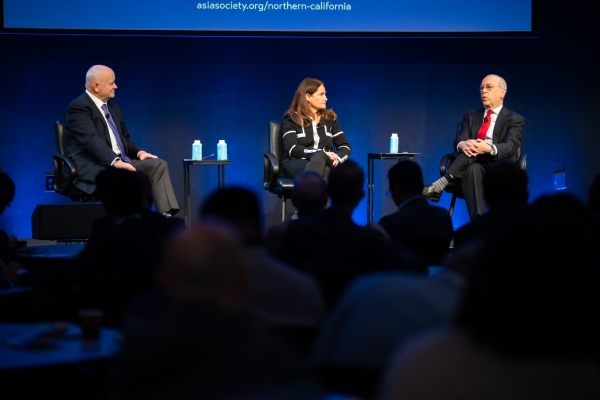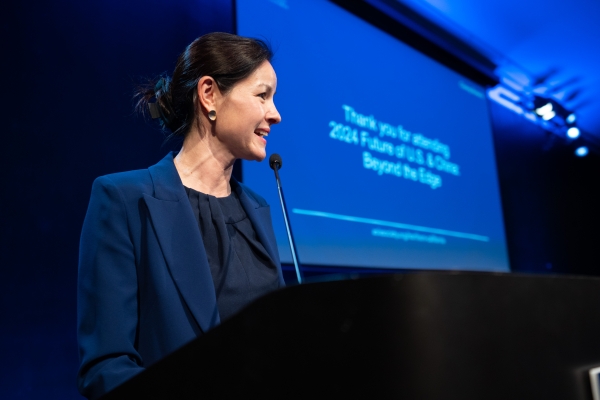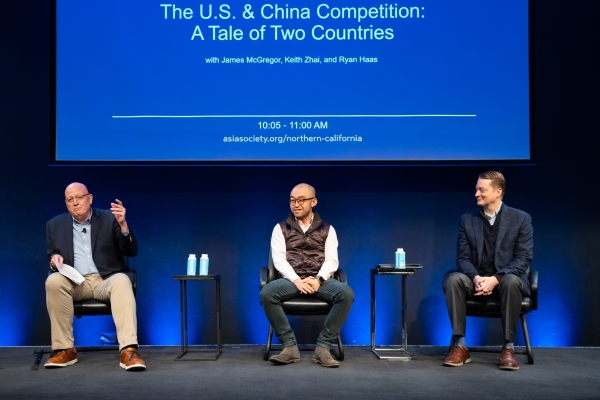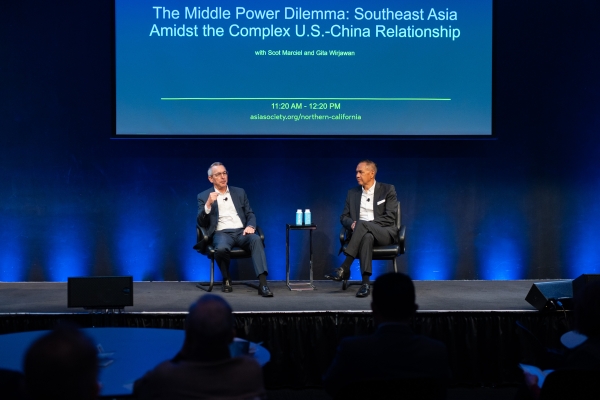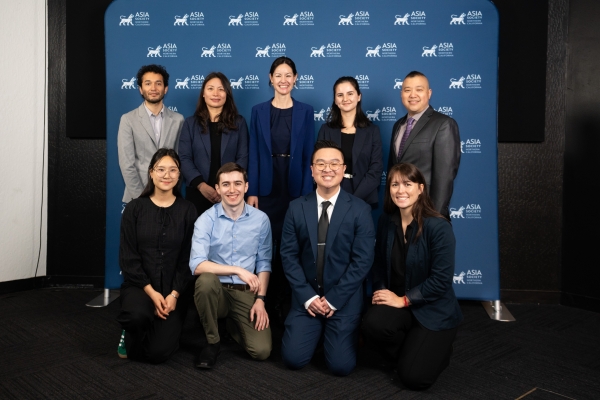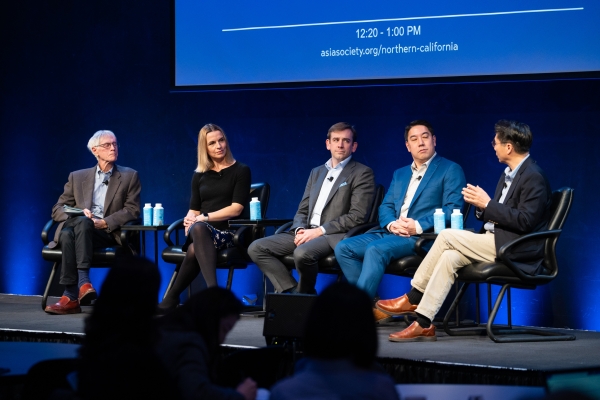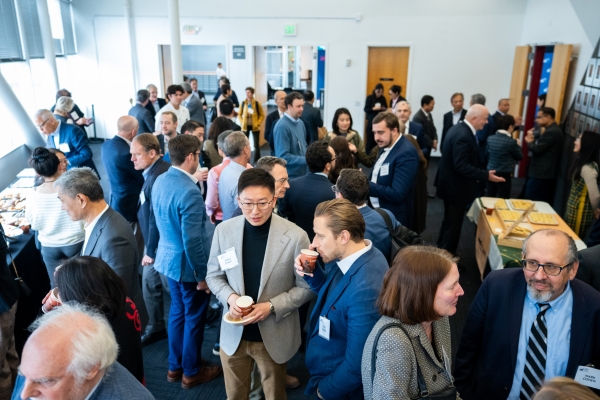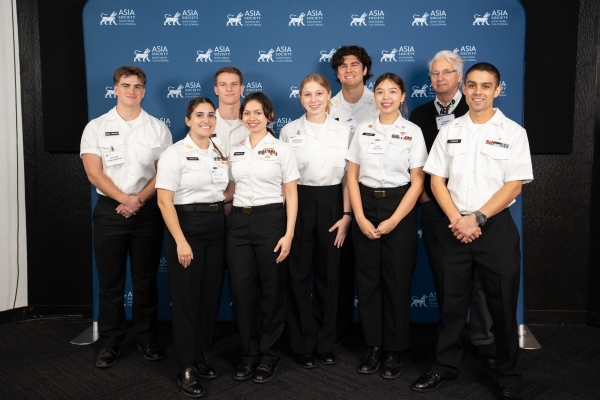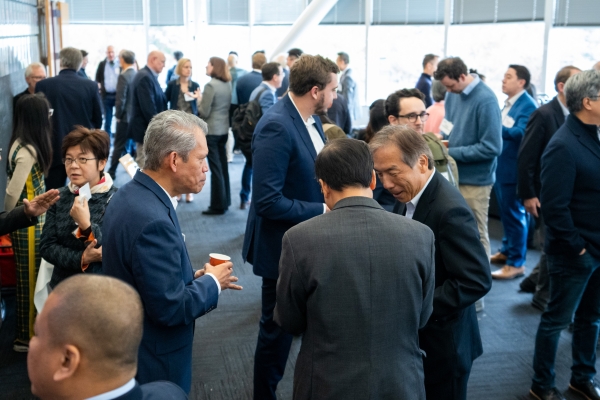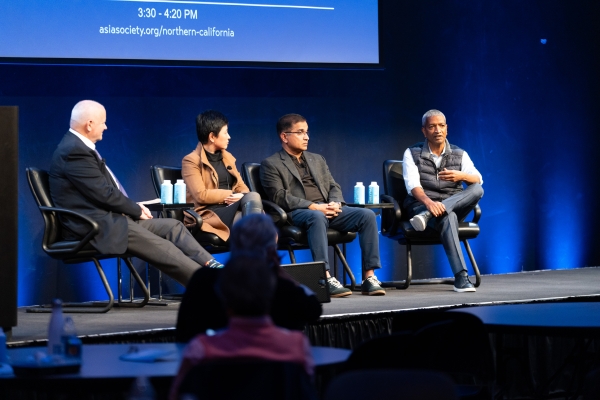Event Recap: The Future of U.S. & China - Beyond the Edge 2024
Event Recap With Images and Videos
Explore our online gallery for a vast selection of additional pictures by clicking here. Images by Wild Horse Productions.
On January 18, 2024 Asia Society Northern California hosted its sixth annual all-day U.S. & China Conference: The Future of U.S. & China: Beyond the Edge. This full-day event, took place at the Computer History Museum in Silicon Valley, CA, and featured leaders in business and trade, China experts, and journalists exploring the complex and evolving relationship between these two global powers. The event provided a diverse range of perspectives on various topics, including economic outlook, domestic politics, the innovation race, and the Taiwan election.
We've captured the event on video and will be sharing it here and on our YouTube channel in the coming weeks, along with photos. With a total of 23 speakers and 7 panel discussions, we'll be releasing one video per week. Be sure to subscribe to our channel and stay tuned for the release of these informative discussions.
SESSION 1
The Future of U.S.-China Relations – Where are we now? with Gary Rieschel, Elizabeth Economy, and Daniel Russel
This session was moderated by Gary Rieschel, Chair at Asia Society Northern California and Asia Society Seattle, and Founding Managing Partner of Qiming. Panelists were Elizabeth Economy, Senior Fellow at the Hoover Institution at Stanford University, and Daniel Russel, Vice President for International Security and Diplomacy at the Asia Society Policy Institute.
The panelists discussed the state of U.S.-China relations in 2023. Economy highlighted the policies that the United States adopted to compete with China, utilizing strategies such as investment, export controls, supply chain diversification, and alignment with allies. The latter half of the year saw a shift toward managing competition through engagement on issues like climate change and fentanyl. Daniel Russel underscored the many challenges facing China, such as economic issues and the consequences of its zero-COVID policy. Gary Reischel raised concerns about China’s restriction of information flows, which has the potential to diminish understanding over time. Looking ahead, Economy recommended that the United States should maintain focus on its competitive relationship with China. Russel stressed the fragility of the U.S.-China détente, emphasizing the need to differentiate between unproductive rhetoric and productive competition focused on outcompeting China in key areas.
SESSION 2
The U.S.-China Competition – A Tale of Two Countries with James McGregor, Ryan Hass, and Keith Zhai
This session was moderated by James McGregor, Chairman of APCO Worldwide’s Greater China Region, and featured speakers Ryan Hass, Director of the John L. Thornton China Center and the Chen-Fu and Cecilia Yen Koo Chair in Taiwan Studies at Brookings, and Keith Zhai, Senior Adviser at Global Counsel.
Speakers started off by recounting the recent APEC Summit in San Francisco and the two countries’ responses. Zhai covered topic of domestic concerns in China, which included the status of Xi Jinping’s control of the government and growing feelings of government incompetence among Chinese citizens. Regarding the U.S., speakers agreed the upcoming presidential election will have major implications for national and foreign policy. However, Hass mentions that while debates surrounding China may be loud, policy will remain steady. The speakers shared a belief that there is an absence of shared purpose between the two countries, and stressed the importance of mutual understanding in building a more cooperative relationship.
During the question and answer portion, panelists explored the possibility of cooperation over the fentanyl issue, qualms surrounding China's domestic economy, and the strength of maintaining business relations in building bridges between the U.S. and China.
SESSION 3
The Middle Power Dilemma: Southeast Asia Amidst the Complex U.S.-China Relationship with Laura Silver, Scot Marciel, and Gita Wirjawan.
Laura Silver, Associate Director, Global Attitudes Research, Pew Research Center presented the results of a recent Pew survey that compared views of the United States and China in 24 countries. Silver looked at factors such as favorability, leadership, and perceptions on technological development, and standards of living.
After the presentation, a panel including Scot Marciel, Oksenberg-Rohlen Fellow, Freeman Spogli Institute for International Studies, Stanford University, and Gita Wirjawan, Chairman and Founder, Ancora Group, discussed Southeast Asia's perspective on the growing rivalry between the United States and China. They discussed how Southeast Asian countries want to maintain their independence and freedom to work with both the United States and China based on their own interests. While some countries may lean more toward one or the other economically or for security, they do not want to be forced to pick sides. Wirjawan explained how Southeast Asian countries have a long history of navigating multipolar relationships successfully. Challenges remain, however, like the South China Sea disputes and ASEAN's lack of a unified response. Economic engagement from both the United States and China was also discussed, as well as China's Belt and Road Initiative, which has underdelivered but still offers needed infrastructure funding. Overall, Marciel and Wirjawan emphasized Southeast Asia's strategic importance and agency in the context of U.S.-China competition.
SESSION 4
Crossing the Strait: The Taiwan Election and U.S.-China Relations with Orville Schell, Raymond Kuo, Margaret Lewis, Kharis Templeman, and Chenjian Li
This session was moderated by Orville Schell, Arthur Ross Director of the Center on U.S.-China Relations at Asia Society. Panelists included Maggie Lewis, Associate Dean for Faculty Development and Institutional Operations and Professor of Law, Seton Hall University; Kharis Templeman, Research Fellow, Hoover Institution; Raymond Kuo, Senior Political Scientist, Rand Corporation; and Chenjian Li, Hoover Institution Research Fellow.
The discussion focused on the 2024 Taiwanese Presidential elections and their implications for cross-straits relations, Taiwan domestic politics, and U.S.-China relations. The panelists provided their views given their respective expertise in various fields including history, legal, security, and politics. They shared that the 2024 elections represent the growing separation of Taiwanese national identity from the mainland and the declining support for possible unification with the PRC. Moreover, they discussed the future of the US’s strategic ambiguity policy regarding security assurances for Taiwan and the PRC’s cross-straits strategy moving forward.
SESSION 5
Risk or Reward? – Gauging China’s Economic Outlook with Li Song, Andy Rothman, Scott Rozelle, and Victor Shih
This session was moderated by Li Song, Managing Director of Asia at Silicon Valley Bank, and featured speakers Andy Rothman, Investment Strategist at Matthews Asia; Scott Rozelle, Co-Director of the Stanford Center on China’s Economy and Institutions; and Victor Shih, Ho Miu Lam Chair in China and Pacific Relations at UC San Diego.
The panelists covered both pessimistic and optimistic views when looking at the current state of the Chinese market. Speakers firstly delved into China’s housing and property market, touching on the wider implications of government debt and realities in rural China. Speakers also noted the significance of youth rural unemployment, decreasing consumption, and the lack of a transparent and stable regulatory environment for private businesses. The success of the entrepreneur economy was also raised, which now accounts for 90% of the urban work force, and how support for entrepreneurship is essential. Lastly speakers discussed the intertwined nature of national security and economic and social stability in Chinese policymaking.
Session 6: AI Live Demo | Reimagining AI Use – Applying GPT Tools to the Future of U.S. and China Conference
This was a special in-person session by Tricia Wang, Sociologist and Affiliate at Harvard's Berkman Klein Center for Internet and Society. Tricia delved into the narratives of AI, and her research which focuses on framing humanity as AI shapers, not users. Audience members interacted with real-time experiment feeding GPT content from our conference and probing the model with scenarios.
SESSION 7
The U.S. and China Innovation Race with Gary Rieschel, Rui Ma, Ganesh Iyer, and KR Sridhar
This panel was led by Gary Rieschel, Chair of Asia Society Northern California, and included Rui Ma, COO of AlphaWatch AI, Ganesh Iyer, CEO of NIO U.S., and KR Sridhar, Founder, Chairman, and CEO of Bloom Energy.
This panel discussion focused on innovation and technology competition between the United States and China. Key topics included AI development, the electric vehicle industry, energy transition challenges, and the importance of attracting global talent. The panelists shared their experiences working in both countries and their perspectives on innovation ecosystems. China was highlighted for its rapid infrastructure development, though currently invention may be better rewarded in the United States. Collaboration between countries was emphasized to solve shared problems like sustainable energy and climate change. Issues around high-skilled immigration policies restricting foreign talent were raised. Losing skilled students and researchers was seen as detrimental to U.S. competitiveness. Overall, the panel argued that openness to global skills and partnerships across borders will be important for continued technology leadership.
